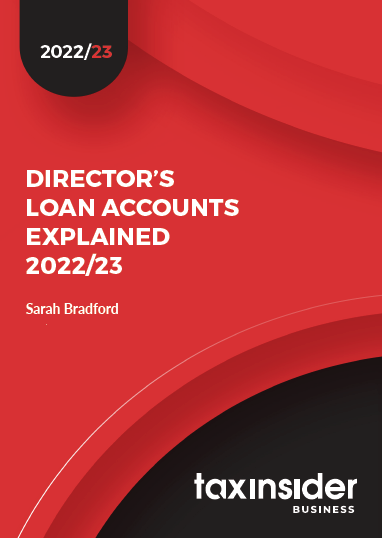
For more in depth discussion on this important area of business taxation, please see our recently released guide, Directors' Loan Accounts Explained.
A method by which cash can be extracted from a family company is to borrow from that company. The benefit for the borrower is a short-term loan, interest-free, with no completion of application forms and no refusal by a bank.
However, care is needed to ensure that the loan or advance does not fall foul of the rules for ‘loans to participators’ if it is not repaid within nine months after the end of the company's accounting period.
Usually, the borrower will be a director or shareholder of the company. However, the rules apply to anyone deemed to be a 'participator,' i.e., anyone (or their associate) with a financial interest in the company (excluding a bank operating in the ordinary course of its business, or trade creditors of the company).
Tax charge
Should the loan not be repaid within the set time limit, the company is liable to a charge of 32.5% (increasing to 33.75% from 6 April 2022). Strictly, the tax charge should be considered each time a loan is made. However, in practice, it is only necessary to consider loans outstanding at the end of the accounting period.
The charge is temporary because a refund claim can be made once the repayment has been made. The claim must be made within four years of the end of the accounting period in which the loan was cleared; otherwise, the relief is lost and the refund cannot be made.
Although the tax is not corporation tax, it is payable with the corporation tax for the period, and HMRC will charge interest if it is paid late.
‘Bed and breakfasting’
It could be possible to repay a loan shortly before the nine-month date and then take out another new loan, such that an interest-free loan could continue for years. The practice involves the participator repaying the loan within nine months after the accounting period end, so that the tax charge is not made. The participator then withdraws another amount shortly thereafter.
However, anti-avoidance rules mean that such practices (known as 'bed and breakfasting') are generally ineffective.
Is it caught?
Anti-avoidance provisions apply where, within any 30-day period, loan account repayments of £5,000 or more are made to the company, and a further amount of £5,000 or more is withdrawn by that person (or associate) in an accounting period after the one in which the loan was initially made.
It does not matter which comes first, the loan repayment or the further borrowing; the 30-day period applies equally. This prevents a participator from taking a new loan and using it to repay all or part of the original.
The charge is on the lower of the amount repaid and the funds borrowed within a 30-day window. The repayment is, therefore, wholly or partly denied (or withdrawn) in respect of the ‘old’ loans, and the refund will only be available to the extent that the repayment exceeds the ‘new’ loans.
Example: Additional loans
Jamilla is the director-shareholder of her own company. During the accounting period ended 31 December 2021, she borrowed £150,000 from the company. This loan remains outstanding at the year end, but is repaid on 29 September 2022.
However, further loans of £50,000 each are made on 11 September 2022 and 28 October 2022, respectively (i.e., within 30 days before the repayment and 30 days after). Therefore, these payments are matched with the 29 September 2022 repayment, such that relief is claimed on £100,000, leaving £50,000 chargeable.
Practical tip
The anti-avoidance rules do not apply if the repayment gives rise to an income tax charge on the participator. Therefore, repayments in the form of salary, bonus or dividend are generally considered exceptions from the ‘bed and breakfasting’ rules.



